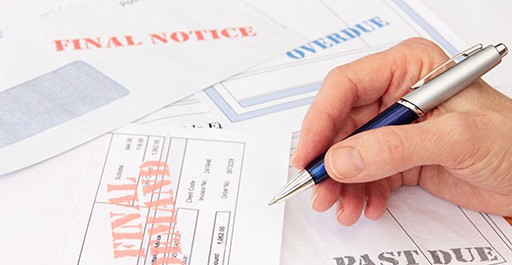A debtor’s default can lead to several effects under Thai law.
By virtue of an obligation, a creditor is entitled to claim performance from a debtor.
In case the debtor is not performing or not performing as agreed, the creditor can give a warning to the debtor after the date of maturity. After the warning is received, the debtor is in default.
In some cases, the debtor can be in default even without this warning. If the creditor and the debtor fixed a time by the calendar for the performance, the debtor is in default without a warning if he does not perform at the fixed time. Therefore, for a creditor, it is always useful to fix a time for the performance, since there is no warning needed to give the debtor a notice of default.
See Chapter 5 of Thai Civil and Commercial Code, Extinction of Obligation
The debtor may be in default without a warning, if notice is required to precede the performance, and the time is fixed in such manner that it may be reckoned by the calendar from the time of notice.
A prerequisite, the debtor is responsible for circumstances of nonperformance. The debtor is not only held responsible for his own fault, but he is also responsible for the fault of his agent, and of persons whom he employs in performing his obligation to the same extent as for his own fault.
In obligations arise from an unlawful act, the debtor is in default from the time he committed it.
If the debtor is in default, there are several consequences, which are detrimental to the debtor:
- The debtor has to pay compensation for all damages that usually arises from the non-performance. These damages can consist of legal costs (for example the costs for hiring an attorney) or other extra costs like covering purchases.
- If by reason of default, the performance becomes useless to the creditor, he is allowed to refuse performance and claim compensation for non-performance. The claim of damages for compensation for all such damages that usually arises from non-performance. The creditor even is entitled to demand compensation for such damage as has arisen from special circumstance, if the party concerned foresaw or ought to have foreseen such circumstances.
- A debtor is also responsible for all negligence during his default. Furthermore, he is also responsible for the impossibility of performance arising accidentally during the default, unless the injury would have arisen even if he had performed in due time.
- A money debt bears interest during default at 7.5% per annum. The creditor can demand higher interest on any other legitimate ground.
- The default on the part of one joint debtor avails usually in favor of and as against only the joint debtor in default (joint debtors are several persons, which owe an act of performance in such manner that each is bound to affect the whole performance, while the creditor is entitled to obtain the whole performance only once).
- In case the debtor is bound to compensate for the value of an object which has perished during the default, or which cannot be delivered for a reason which has arisen during the default, the creditor may demand interest on the amount to be paid as compensation, from the time which serves as the basis for the estimate of the value. The same rule applies if a debtor is bound to compensate for the diminution in value of an object, which has deteriorated during the default.
In summary, a debtor’s default leads to a disadvantageous legal position of the debtor. The debtor is liable for all negligence during the default even if an accident made performance impossible. He has to compensate for all damages that usually arise from non-performance. During default, money debts bear high interest rates. Therefore, it is advisable for the debtor to understand his liability before assuming an obligation. Otherwise, the debtor exposes himself to the risks of being in default.



Leave a Comment